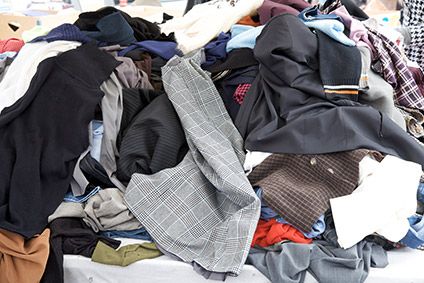
Accelerating Circularity is launching a new project in Europe building on the success of its work to research, map, model and linking circular textile-to-textile systems in the United States.
The founding members of Accelerating Circularity Europe’s steering committee represent firms in global retail, circular supply chain, and textile recycling. They include DuPont Biomaterials, European Outdoor Group, GIZ, Gr3n, Inditex, Lenzing, Recover, Recyclatex Group, Reverse Resources, Texaid, and Zalando.
The steering committee will set the strategy and make decisions for the European project, and will convene a Brand and Retailer Working Group for the development of take-back programmes and circular product specifications. Select collectors, recyclers and pre-processors will comprise a Spent Textile Working Group to address challenges in collection, sorting and feedstock preparation.
As in the US, The European project will unfold in phases: research and mapping, modelling and linking, then trials and evaluation. The new project will expand upon the work done to date and adapt it to the European context.
“We think of successful projects as those that can be repeated and scaled to maximise their impact. The launch of Accelerating Circularity Europe exemplifies this approach and advances our goal of enabling the industry to achieve a scaled, global, circular textile system,” says Accelerating Circularity founder and president, Karla Magruder.
Laura Coppen, head of circularity at Zalando, adds: “With our reach as a platform, we can contribute to scaling circular textile systems and move away from linear to circular business practices. To do that we need to collaborate across the industry to scale solutions quickly, and we believe this project does just that. Our circularity strategy aims to integrate the principles of circularity into our business, with our brand partners and for our customers. We aim to ensure that products don’t end up in landfill or are incinerated and we see this project as a great way to learn and build better systems in the long term.”
Accelerating Circularity says there are multiple ways to participate in the project: NGOs can become Collaborating Organisations, a network of complementary and mutually supportive entities that amplify the work. Companies can join the technical working groups and can also become System Partners once the project launches the trial phase.
The launch comes after Accelerating Circularity proposed a series of links and material flows in a circular textile-to-textile system last month, and noted direct relationships between multiple actors are required for the system to work.



